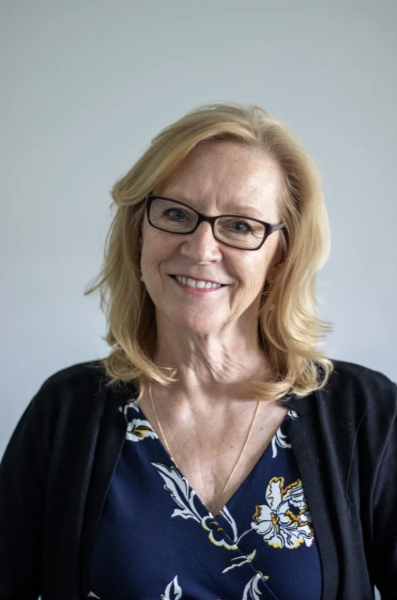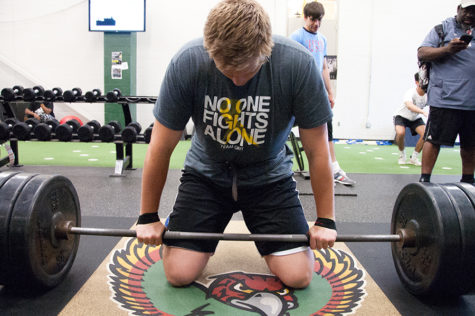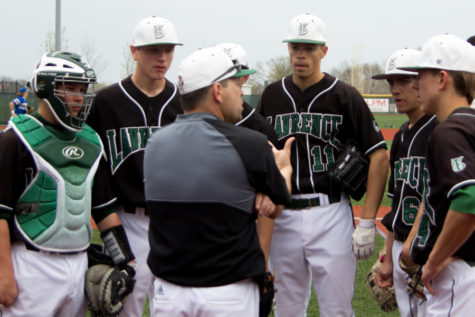Tired of the Culture: Part 2
The administration and Culture and Climate Committee implement protocol to prevent sexual violence within the school
As sexual assault allegations are surfacing against prominent men in our society, rape culture has become a frequently discussed topic. Since the public’s attention has become focused on the issue of sexual violence, students are voicing their concerns that administrators are tolerant of rape culture. Rape culture is defined as an environment which normalizes sexual assault and harassment.
Administrators deny these allegations as they have instituted procedures to prevent and respond to sexual violence within the school. Assistant principal Amy McAnarney believes this plan shows the supervisors’ intolerance towards rape culture.
“When sexual assault occurs, we act and investigate immediately,” McAnarney said. “We are also supportive of the students groups who are trying to bring awareness of sexual assault to the building. I don’t believe we are tolerant of rape culture in any way.”
The administration’s plan to minimize sexual assault breaks down into two major parts: preventative measures and corrective efforts.
The only preventative measures administrators point to is requiring every freshman to be enrolled in Health 9—a class which educates students about sexual violence and consent.
“We talk about sexual assault and having full consent and what that means, how different situations warrant consent and how a person could not give consent under certain circumstances,” Health 9 teacher Amy Wells said.
The semester-long course is designed to prevent sexual assault through awareness education. The curriculum shows students the prevalence of sexual violence and the necessity of enthusiastic, conscious consent.
“It’s something that has always been taboo to discuss before, but it’s becoming more important for our students to understand full consent,” Wells said. “We are making sure that all students are aware that they are responsible for their actions.”
In terms of corrective efforts, the administration enforces a strict no-tolerance policy against sexual harassment and assault. If a case is brought forward by a student, a thorough investigation is conducted.
“When [sexual violence] is reported to us, we act with expedience,” McAnarney said. “We try to get all of the parties involved as soon as we can so that we can begin an investigation—that means assistant principals, SROs, social workers and parents.”
Once the investigation has been completed, the school connects victims to local resources which offer continuous legal and emotional support.
“We want the victim to feel safe, so we can do a variety of things for them,” McAnarney said. “This could include on-going social work services or even a schedule change if that is needed or requested.”
After receiving complaints from students that the administration’s efforts were failing to prevent sexual violence, the Culture and Climate Committee decided to get involved in the matter.
The CCC is a teacher-ran organization which promotes respect, responsibility and safety throughout the school. They organize activities such as courageous conversations to provide opportunities for students to discuss important social issues.
“The ultimate goal of the CCC is to create a healthy culture in school where students are encouraged and—in some cases taught—how to respect each other and how to include diversity of students from all areas including race, gender identity and ethnicity,” CCC member Jacob Larson said.
The CCC held a meeting in which sexual assault victims were given the opportunity to share their stories. They were able to speak out about their experiences and present actions which they want to see taken in front of the entire committee.
“When students have issues or are frustrated by something in school, we try to address it,” CCC member Sarah Podrasky said. “If there is an issue that a student brings up we try to put some action to it so that it’s not just conversation, so that it actually goes somewhere.”
The committee plans to further student’s awareness of this issue by including lessons which pertain specifically to sexual violence.
“One of the very first lessons that we have for next year is related specifically to [sexual violence], because we want to make sure that students—males in particular because statistics show that they are greater offenders than women—know what consent is,” Larson said. “Those will probably be uncomfortable topics in classrooms, but they are conversations that need to be had.”










